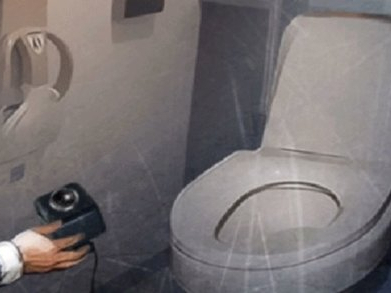 |
| ▲ An image depicting the illegal filming crime in women's restrooms (Source: Yonhap News) |
The judgments of the first and second trials differed on whether the illegal filming of crimes committed in women's restrooms frequented by children and adolescents is classified as ‘sexual exploitation material.’ In September last year, a man in his 20s was brought to trial on charges of illegally filming in a women's restroom over 47 times. In the first trial, the man was found guilty of all charges, including the production of sexual exploitation materials, and was sentenced to five years in prison. However, in the second trial, the court reduced the sentence to three years and six months because it was determined that the video was not related to the production of sexual exploitation of children and adolescents. In the second trial, it was argued that the act of exposing body parts while using the restroom was not sexual intercourse. Apart from the fact that the victims may feel embarrassed, the court judged that the act of using a restroom itself is not an obscene behavior that causes sexual humiliation or aversion to the general public. Experts pointed out that the judgment of the second trial focused only on the literal definition of ‘exploitation.’
In fact, the regulations for punishing sexual exploitation crimes have been strengthened after the ‘Nth Room’ case. According to the 'Law on the Sexual Protection of Children and Adolescents,' 'sexual exploitation material of children and adolescents' is defined as, “any content that features children, adolescents, or adults who can be perceived as children or adolescents, engaging in acts that cause sexual humiliation or disgust to the general public, or engaging in other sexual acts, in the form of films, video games, and images through computers or other multimedia.” Therefore, even with the consent of children or adolescents, taking a picture or filming a video of their naked bodies can still be considered as sexual exploitation material. Furthermore, if the subject appears to be that of a child or adolescent, even if they are adults, it can still be considered as sexual exploitation material and be subject to punishment.
According to the analysis reported by the Ministry of Gender Equality and Family, even though the proportion of imprisonment is increasing in cases of sexual crimes against children and adolescents, the reality is that more than half of the offenders are given suspended sentences as legal penalties. Furthermore, despite the efforts to combat illegal filming, the number of incidents and the detection rate have increased every year. Weak penalty regulations have been pointed out as one of the main reasons for the persistence of such crimes. For instance, the average sentence served by individuals who commit sexual offenses against children and adolescents is just five years. Considering that the sentences for sexual offenses against children and adolescents are considerably higher than those for other sexual offenses, this implies that the penalties for other sexual offenses are much lower.
In light of these circumstances, the verdict has sparked societal controversy, but it also highlights the need to reexamine the legal approach to women's privacy and illegal filming. In particular, there is a need to recognize the seriousness of the crime and to strengthen effective legal measures and societal responses regarding crime prosecution and sentencing. Sexual crimes pose a dual threat in terms of personal privacy and societal safety, underscoring the urgent need for awareness and response to this issue.
Strengthening the response to this issue requires a multi- faceted approach, including legal amendments, education, prevention programs, and punishment of offenders. This is because the ongoing debate is significant in terms of legal definitions, social ethics, and the protection of personal information. In addition, education that emphasizes the safe use of the Internet and digital media is essential. Alongside this, it is imperative to strengthen digital literacy and consider proper monitoring and regulation of online platforms. This is to prevent secondary crimes that may occur in the future. With the expansion of the online space and the increase in various forms of sexual offenses against children and adolescents, we hope that the ongoing trial will be concluded with a reasonable judgment by the judiciary.
By Park Jeong-hyeon, reporter jhgongju0903@gmail.com
<저작권자 © The Campus Journal, 무단 전재 및 재배포 금지>

 Shrinkflation, Consumer Deception
Shrinkflation, Consumer Deception




